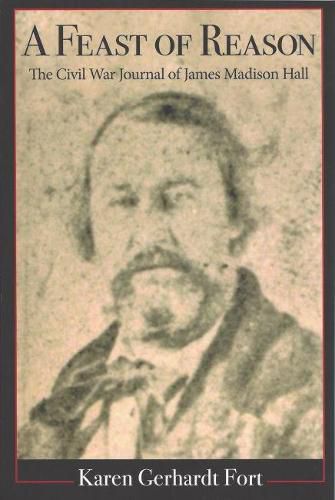Readings Newsletter
Become a Readings Member to make your shopping experience even easier.
Sign in or sign up for free!
You’re not far away from qualifying for FREE standard shipping within Australia
You’ve qualified for FREE standard shipping within Australia
The cart is loading…






James Madison Hall kept a journal from 1860 until just before his death in 1866, in which he recorded a daily log of events in his life and the lives of his family, slaves, and friends. It also served as a record of business dealings, money borrowed and repaid, and cost of items during the war. Hall lived in Houston County, Texas, where he was a farmer, and in Liberty County, Texas, where he was a merchant and mayor of Liberty.
This book illustrates the home life of Texans during the Civil War and includes Hall’s relationship with blacks, especially a man named Billl Hicks, who became Hall’s miller when Hall was away. Th is book traces the changing relationships betweeen slaves and masters during the early post-war transition, before Congressional Reconstruction began. Hall’s feast of reason was to refuse to go into the military, even though he favored seccession; to adapt to changing needs and circumstances; and to remain a voice of fairness and moderation during these trying times.
$9.00 standard shipping within Australia
FREE standard shipping within Australia for orders over $100.00
Express & International shipping calculated at checkout
James Madison Hall kept a journal from 1860 until just before his death in 1866, in which he recorded a daily log of events in his life and the lives of his family, slaves, and friends. It also served as a record of business dealings, money borrowed and repaid, and cost of items during the war. Hall lived in Houston County, Texas, where he was a farmer, and in Liberty County, Texas, where he was a merchant and mayor of Liberty.
This book illustrates the home life of Texans during the Civil War and includes Hall’s relationship with blacks, especially a man named Billl Hicks, who became Hall’s miller when Hall was away. Th is book traces the changing relationships betweeen slaves and masters during the early post-war transition, before Congressional Reconstruction began. Hall’s feast of reason was to refuse to go into the military, even though he favored seccession; to adapt to changing needs and circumstances; and to remain a voice of fairness and moderation during these trying times.